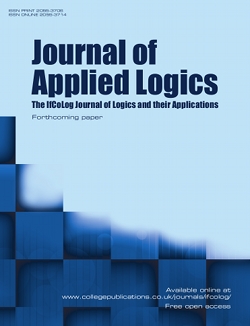 | Events as Located Situations: Ontological Commitments in the Problem of Individuating Events
B.O. Akinkunmi
One of the sub-problems of the event individuation problem: if $A$ does $x$ by doing $y$, is $A$ doing $x$ the same event as $A$ doing $y$? Although it has been argued in the literature that doing $x$ is a trying and as such, a mental event, the basis for defining the physicality of such actions when they succeed, needs to be defined.
This paper argues that actions that must be done by doing something else are Vendlerian accomplishments and that treating events as located situations enables one to commit to the option in which doing $y$ is a sub-situation of doing $x$. This is done by defining a sufficient condition for inferring that $x$ has been accomplished from the fact that y has been done, which, is when a situation in which y has been done causes another situation in which the culmination of the accomplishment $x$ holds.
By extending the situation theory with intentional predicates, it becomes possible to model $x$ as an intentional or strategic accomplishment and consequently define the sufficient condition for inferring that a situation in which y is done is a plan that resulted in a situation for accomplishing $x$. That condition holds when it is known that agent's intention in carrying out y is to accomplish $x$ and the agent's plan is rational, and the situation characterized by the agent's doing of $y$ causes a situation in which the culmination of $x$ holds.
January 2021
|

